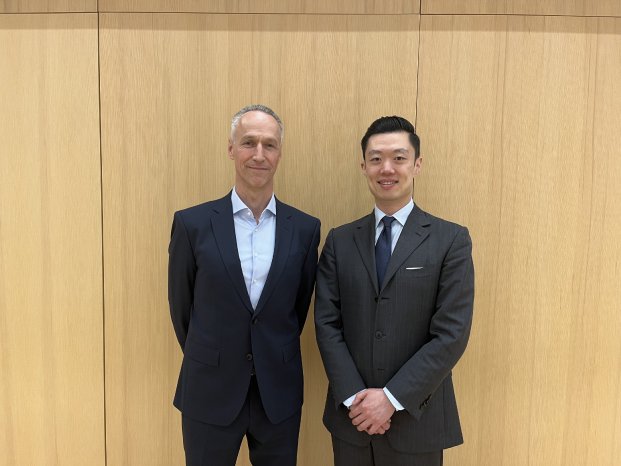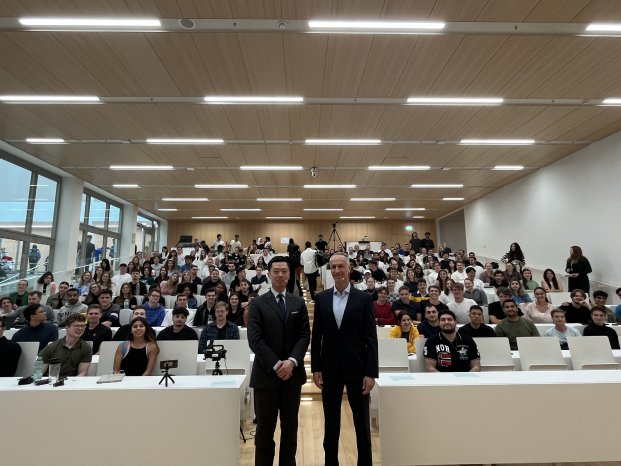The fact that Lindner, President of Federal Police Special Operations Command 11 and previously commander of the elite GSG 9 federal police unit for many years, would one day hold important positions had become apparent early on in his life: “I have always enjoyed taking on responsibility,” he recalls at TUM. As a teenager, he was elected class representative and took up competitive sport rowing as a stroke man. His original career goal was a logical consequence: “It was obvious that I wanted to become an officer.”
Character is the deciding factor
After completing his military service, Lindner signed up for two years in the German army. But it soon became clear: “The challenges that the Bundeswehr offered me were at that time not enough.” In his search for a new role, Lindner joined what was then the Federal Border Guard, but his goal was the GSG 9. He prepared for the selection process for the special unit for combating organized crime and terrorism alongside his studies for the police service.
How did the selection process work? For one week, the applicants were challenged in numerous multiple choice tests, individual and group tasks as well as stress tests. Lindner immediately counters any expectations of the students from the Bildungscampus Heilbronn that physical fitness is the most important thing in the police force: “A strong physique is a basic requirement, but we first look at character.” Intellect, the ability to work in a team and authenticity are decisive qualities. Above all, psychological resilience, because a person's true character is revealed in crisis situations.
Permanently present in crisis situations
The successfully completed selection process was followed by “ten months of tough training in which all factors were tested in a wide variety of ways”. Lindner mastered these challenges as well as the six-month probationary period. His subsequent working life at GSG 9 was anything but monotonous: “No two days were the same, we had to be ready for action at all times.” Like this many operations were handled successfully.
How does he deal with the enormous psychological pressure? You have to keep calm, says Lindner. A healthy degree of humility and respect for the task and the people involved is also appropriate. Moreover, a high level of conscientiousness: “It's important that you prepare yourself anew for every assignment and in advance always carry out a precise analysis and planning.”
Trust is built through communication
In Heilbronn, Lindner shows himself to be a committed team player. This is exactly what he tries to implement as a manager: “It's important that the team grows together. The most important thing is to have confidence in each other, because you entrust each other with your lives.” But how can trust be built? Above all, through constant communication and targeted teambuilding, says Lindner.
Lindner answers the many questions from the students – both during the subsequent Q&A session and after the event – as openly as possible. He names his parents, grandparents and GSG 9 founding commander Ulrich Wegener as his great role models, describes the ideal leadership style as authentic, flexible at the same time and sees it as his duty to contradict an order if he considers it to be appropriate. The students take numerous souvenir photos with him and can perhaps sleep more peacefully in future – knowing that their safety is in the hands of such level-headed personalities.




